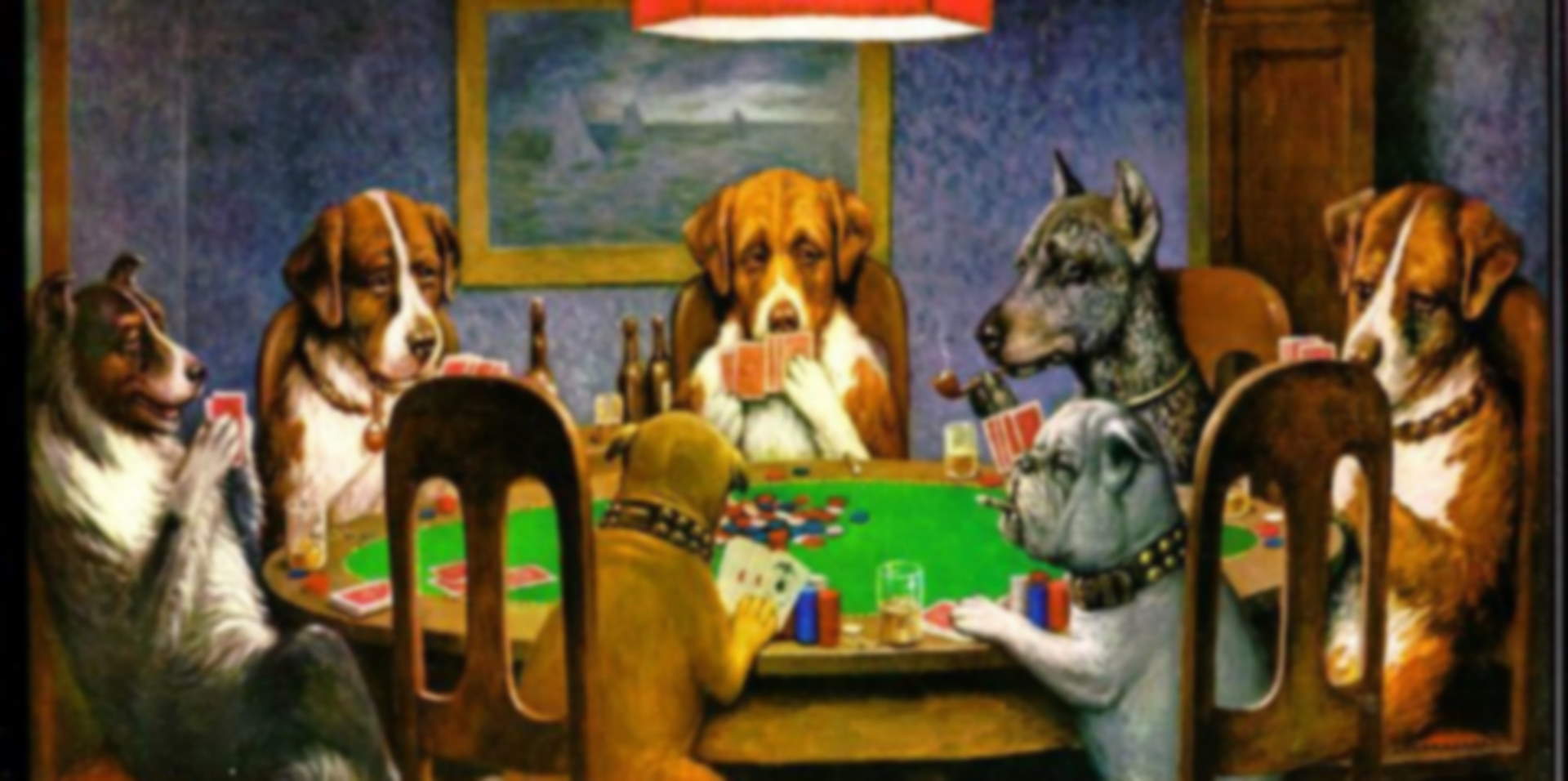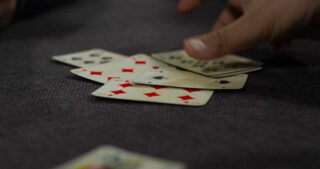

Most people will tell you that this is a bad event to have to deal with. I’ve heard over and over that when they start to take their shots, you should just pack up and go home. Well, I’m not so sure about this as long as you’re playing your usual good game. If running bad has affected your play so that you are now playing much worse than what you normally do, that is you are now steaming or perhaps your judgement is way off, then I agree that you should stop. But if you’re able to handle the adversity and still play your best, that just might be a different story. Let’s look at a couple of examples.
You’ve been running bad in a game and some opponent decides that since everyone else is beating you, that he should get in there and do the same. Specifically, suppose after you raise in early position he calls your raise with a hand like:
K 10
Clearly he should not be making this call. That’s because you could easily have a pair tens or higher, or a king with a better kicker. In fact, if you knew that this player had this hand, you would generally want him in there because you can sometimes trap him very badly and the action on the later streets can greatly favor you.
Notice that if people are calling you more, and if this carries over to all the streets, it will cause you to make some adjustments in your play. You can’t steal as much and you should probably fold some marginal hands when first in from a late position, your isolation raises won’t be as successful, and your semi-bluff type bets on the flop and beyond won’t be as effective.
On the other hand, when you do hold a strong hand, you should get action, usually by someone calling you down where normally they would not. This should roughly counter-balance your inability to steal since your value bets (and bets with sure winners) are now worth more. That is since they will be playing many hands against you that they shouldn’t, your overall expectation just might be improved.
So the conclusion here is if some of your opponents are getting in there with weak hands that they normally wouldn’t play because you have been running bad, it is probably to your advantage. If this is how they choose to take shots at you, then that’s great.
Unfortunately, the above is not the whole story. There is another way that some of your opponents can take shots at you and this has to do with one of the core characteristics of poker. They may begin to utilize the bluff better, and that can prove to be very expensive.
It’s great to play against players who virtually never bluff. That’s because when they bet they not only have a hand of value, but their bets or raises will help to identify exactly what their hand is. This is a great advantage that an expert has over a weak player.
But if that weak player will now occasionally bluff because you have been losing, whereas otherwise he wouldn’t do it, the above two characteristics won’t be accurate anymore. His hand will be tougher to read, and he will steal some pots that should rightfully be yours. In poker, especially in games like limit hold ’em and stud where the pots can get quite large when compared to the bet, an occasional bluff can be very expensive.
What has happened is that your opponent, the weak player who has now decided to take an occasional shot at you, will by accident be playing an effective game theory strategy. Now I won’t go into game theory here and how it can affect poker strategy, but suffice it to say that an opponent who occasionally bluffs in limit poker is someone who is now playing much better, not just a little better, than an opponent who virtually never bluffs. (See The Theory of Poker by David Sklansky for more discussion.)
What has happened is that your poor results has now accidentally turned a desirable opponent into a tough one. Furthermore, as long as he bluffs (against you) only occasionally and in a somewhat random manner — that is you can’t predict or read his bluffs — he is someone that you probably won’t want to play against. In fact, and this is the beauty of game theory, it won’t matter very much if you even know for sure that his strategy has changed in this manner. Your results will decline if you never call him, if you call him all the time, or if you choose to call him some of the time.
So if your running bad is causing some of your opponents to occasionally bluff you when they normally would not do so, or perhaps are afraid to do so, your results should drop off. In fact, if several people react to you in this way, it might temporarily change you from a winner to a loser. If you think this might be the case, my advice would be to change games or perhaps call it a night all together.
In closing, we can see that running bad might be helpful or harmful to your overall expected results. It all depends on how your opponents react to your unfortunate luck (and again I’m assuming that you are still playing your usual good game). Also, my experience is that you will see some of each type when losing. So to be successful in this spot, you need to evaluate exactly what is happening at the table, and make the appropriate adjustments, which sometimes means that you adjust your play, and sometimes means that you should find another game.
Mason Malmuth
Dieser Artikel erschien auf PokerOlymp am 24.07.2007.


